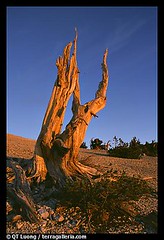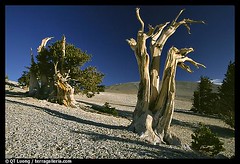Thoughts from a cubicle
The world teems with diversity, beauty, and adventure. The urban, the isolated. The tropical, the arctic. The mountains, the ocean depths. The desert, the rainforest. Russians, Salvadorians. Silicon Valley Nanotech, Barrow whaling. Bangkok, Rio de Janeiro, Jerusalem, Berlin, Shanghai, Moscow, Addis Ababa, Johannesburg, Nairobi, Tokyo, Paris, Buenos Aires, Kiev, Cairo, Mosul, Los Angeles, Sydney, London, Bombay, and on and on and on! I want to snake through the bazaars of Istanbul, swim through Vanuatu’s tropical waters, ride Japanese bullet trains, gaze upon the crystal reflection of an alpine Patagonian lake, and explore Tehran’s Persian treasures.
The Problem: All this requires money, equipment, savvy friends, visas, the end of wars, and time. Don’t get me wrong, I want all those quixotic schemes to come to fruition within my lifetime, but practicality demands careful planning, patience, and perseverance. Luckily, there’s hope for the meantime…
The truth: adventure is more a state of mind and less a plane ticket. Treasures tuck themselves away in the most unexpected, easily dismissed locales. This lesson drilled itself into my thick skull when my roommate and I drove up to rural Maryland this weekend to visit some friends. The couple who recently built their beautiful, modern retirement home on 8-acres led me out into the musty, insect-symphony night to showcase their hidden gem. Sitting there, not 30 feet from the house itself, was a cabin constructed over 150 years ago that they had used as a bucolic escape for years before building the new house. Those same sturdy planks offered protection from the elements to some family during the American Civil War! This unexpected historical find sits less than 40 miles away from my apartment in DC and I’m sure countless other rickety cottages dot the landscape around here.
Which finally brings me to the point: the stomping ground that I know and love best, the western US, cradles its own panoply of accessible rarities-especially natural rarities-many of which I’ve never thought to explore. Since nature is what the west does best, it came as no surprise when I discovered that six western states house the oldest known tree species in the world: the Bristlecone Pine (Pinus Longaeva). It seems the Bristlecone Pine has managed to stave off competition hungry to enforce the Darwinian call for newer, stronger species by employing a number of self-protection techniques. Thriving at typical elevations between 10,000 and 11,000 feet, Bristlecones persist in circumstances other types of growth find uninhabitable. They survive on dolomite and alkaline soil layers that offer insufficient nutrients for most types of growth. Furthermore, they know how to protect themselves from each other. Loners for life, these ancient trees leave ample room between themselves, thus ensuring that lightening strikes normally only destroy small clumps of trees, instead of whole forests. Fire cannot jump the distance between trees and no ground cover serves to transfer the flames. Also, if damaged by fire, drought or storms, much of the bark and tissue that conducts water dies back, effectively reducing the nutrient load the tree must supply to tissue and balancing the result of the damage. It seems you learn a lesson or two over the course of millennia.
It seems the Bristlecone Pine has managed to stave off competition hungry to enforce the Darwinian call for newer, stronger species by employing a number of self-protection techniques. Thriving at typical elevations between 10,000 and 11,000 feet, Bristlecones persist in circumstances other types of growth find uninhabitable. They survive on dolomite and alkaline soil layers that offer insufficient nutrients for most types of growth. Furthermore, they know how to protect themselves from each other. Loners for life, these ancient trees leave ample room between themselves, thus ensuring that lightening strikes normally only destroy small clumps of trees, instead of whole forests. Fire cannot jump the distance between trees and no ground cover serves to transfer the flames. Also, if damaged by fire, drought or storms, much of the bark and tissue that conducts water dies back, effectively reducing the nutrient load the tree must supply to tissue and balancing the result of the damage. It seems you learn a lesson or two over the course of millennia. Mommy and daddy Bristlecone conceived the oldest known individual tree in the world, Methuselah, 4,789 years ago (it celebrated its 100th birthday when the Egyptian Pyramids were being contructed). Methuselah traveled much in its younger years but returned to the White Mountains of California to live its millennia out among relatives. Methuselah descended into a severe depression in 1964 after the US Forest Service allowed a geologist to cut down his older brother Prometheus. The geologist’s coring tool broke after passing 4,000 years and USFS decided finding out that Prometheus was 4,950 years old was more important than letting it live. USFS now strictly protects these venerable soldiers.
Mommy and daddy Bristlecone conceived the oldest known individual tree in the world, Methuselah, 4,789 years ago (it celebrated its 100th birthday when the Egyptian Pyramids were being contructed). Methuselah traveled much in its younger years but returned to the White Mountains of California to live its millennia out among relatives. Methuselah descended into a severe depression in 1964 after the US Forest Service allowed a geologist to cut down his older brother Prometheus. The geologist’s coring tool broke after passing 4,000 years and USFS decided finding out that Prometheus was 4,950 years old was more important than letting it live. USFS now strictly protects these venerable soldiers.
Moral of the story: something really interesting is probably really close.


4 comments:
great post. i'll spend the day trying to make sure i don't miss anything that might be really interesting really close.
Muchos gracias, rhein. I was trying to tie together some disparate thoughts that made sense as an idea, but steered towards rambling. thanks for making it through.
Wow, consulting my reference books here. How can I be so much older and yet be untouched by any of this information?
Thanks for the post, will keep me busy all night now!
IS-maybe it was better that way, but thanks for the read. by the way, super-hipstronius glasses you've got there.
Post a Comment